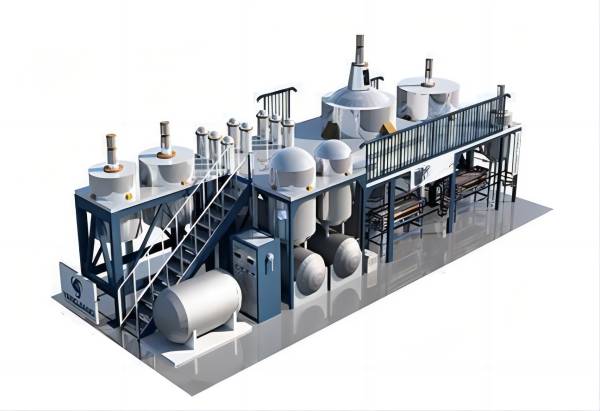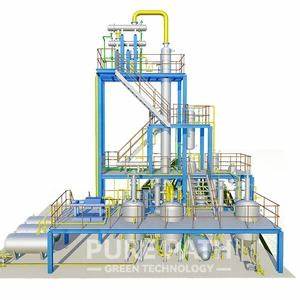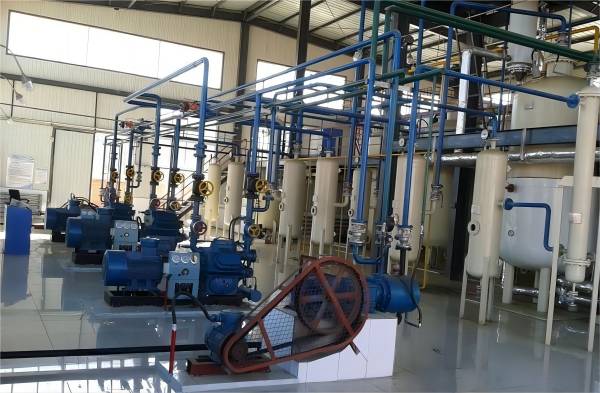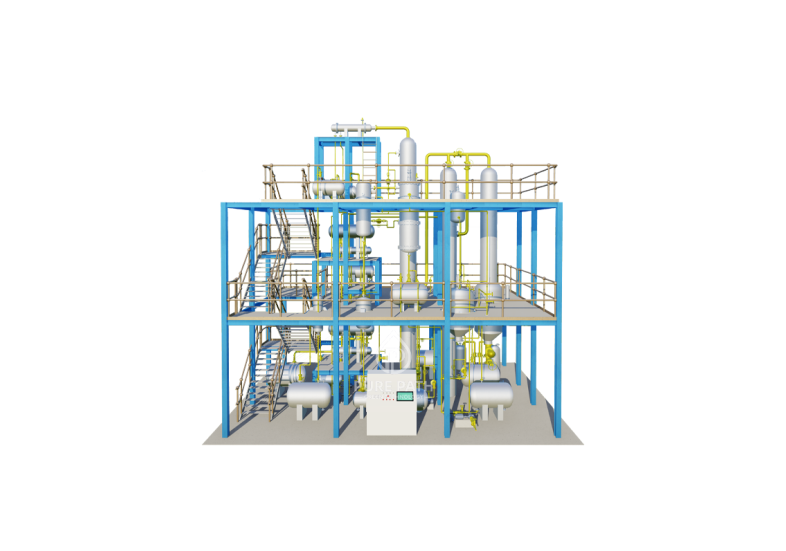Base Oil Solvent Extraction: The Different Solvents and Technologies That You Need to Know
Base oil solvent extraction is a vital process in the petroleum industry, playing a pivotal role in refining crude oil to produce high-quality base oils used in lubricants and various industrial applications. This intricate procedure hinges on carefully selecting solvents essential for dissolving and removing impurities from the crude oil. In this article, we delve into base oil solvent extraction, unraveling the diverse types of solvents employed and examining the latest technological strides in this critical domain.

What is Base Oil Solvent Extraction?
Base oil solvent extraction is a process used to remove impurities from crude oil. The crude oil is mixed with a solvent, such as toluene or xylene, and the mixture is then heated. The impurities dissolve in the solvent, while the base oil remains. The solvent is then separated from the base oil and recycled.
Base oil solvent extraction is a major process in the production of lubricating oils, greases, and other petroleum products. It is also used to produce base oils for other applications, such as in the manufacture of plastics and rubber.
The solvent extraction plant process is relatively simple, but it requires careful control to ensure that the impurities are removed efficiently and that the base oil is not damaged. The solvent must be selected carefully so that it dissolves the impurities but does not dissolve the base oil. The temperature and pressure of the extraction plant process must also be controlled to prevent the base oil from degrading.
The Different Types of Solvents that Can be Used in Base Oil Solvent Extraction
Base oil solvent extraction employs various solvents to remove impurities from crude oil. The choice of solvent depends on the nature of the impurities and practical considerations. Here are some commonly used solvents:
- Toluene: Toluene is a non-polar solvent that is commonly used in base oil solvent extraction. It is a good solvent for non-polar impurities, such as asphaltenes and resins. Toluene is also relatively inexpensive and easy to obtain. However, it is also flammable and volatile, so it must be handled carefully.
- Xylene: Xylene is another non-polar solvent that is commonly used in base oil solvent extraction. It has similar properties to toluene, but it is slightly more expensive. Xylene is also less flammable than toluene.
- Trichloroethylene: Trichloroethylene is a non-polar solvent that is sometimes used in base oil solvent extraction. It is a good solvent for non-polar impurities, but it is also a known carcinogen. Trichloroethylene is also becoming increasingly regulated, so it is not as commonly used as toluene or xylene.
- Tetrachloroethylene: Tetrachloroethylene is another non-polar solvent that is sometimes used in base oil solvent extraction. It is similar to trichloroethylene, but it is even more toxic. Tetrachloroethylene is also being phased out due to environmental regulations.
- Furfural: Furfural is a polar solvent that can be used in base oil solvent extraction. It is a good solvent for polar impurities, such as aromatic compounds. Furfural is also less flammable than toluene or xylene. However, it is also more expensive and less common.
- Phenol: Phenol is another polar solvent that can be used in base oil solvent extraction. It is a good solvent for polar impurities, such as aromatic compounds and amines. However, phenol is also very corrosive and toxic, so it must be handled with extreme care.
- Ethylene glycol: Ethylene glycol is a polar solvent that is sometimes used in base oil solvent extraction. It is a good solvent for polar impurities, such as amines. However, ethylene glycol is also hygroscopic, which means that it absorbs water. This can make it difficult to separate the base oil from the solvent.
- Propylene glycol: Propylene glycol is another polar solvent that is sometimes used in base oil solvent extraction. It is similar to ethylene glycol, but it is less hygroscopic. This makes it easier to separate the base oil from the solvent.
The choice of solvent depends on the specific impurities that need to be removed from the crude oil, as well as the cost and availability of the solvent. In general, non-polar solvents are used for non-polar impurities, while polar solvents are used for polar impurities.

The Latest Advances in Base Oil Solvent Extraction Technology
The latest advances in base oil solvent extraction technology include:
- Supercritical fluids: Supercritical fluids are solvents that are above their critical temperature and pressure. They have unique properties that make them ideal for solvent extraction, such as high solvent power and low viscosity. This means that they can dissolve more impurities from the crude oil and they can be more easily separated from the base oil. Supercritical fluids are also more environmentally friendly than traditional solvents.
- Microwaves: Microwaves can be used to heat the solvent in base oil solvent extraction. This can improve the efficiency of the extraction process and reduce the amount of solvent used. Microwaves can also be used to target specific impurities in the crude oil, which can improve the quality of the base oil.
- Membrane separation: Membrane separation is a technique that can be used to separate the base oil from the solvent. This technique is becoming increasingly popular due to its environmental advantages. Membrane separation systems use semi-permeable membranes to allow the base oil to pass through while the solvent is retained. This is a more efficient and environmentally friendly way to separate the base oil from the solvent than traditional methods, such as distillation.
The use of these advanced technologies is helping to make base oil solvent extraction a more efficient, environmentally friendly, and cost-effective process.

Conclusion
Base oil solvent extraction is a complex process that requires careful control to ensure that it is safe and environmentally friendly. The latest advances in technology are making the process more efficient and less harmful to the environment. However, it is important to continue to develop new technologies to further reduce the environmental impact of base oil solvent extraction.







